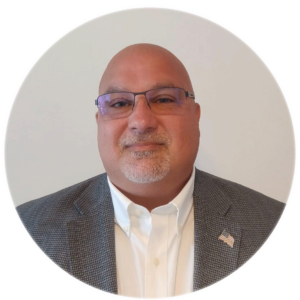As healthcare costs continue to rise, government programs such as Medicare and Medicaid, as well as private insurers, rely heavily on managed care organizations (MCOs) to manage patient care and keep costs under control.
However, some MCOs engage in fraudulent practices such as medical billing fraud, which includes double billing and upcoding. These practices can lead to inflated healthcare costs, putting patients and healthcare providers at risk.
In this blog, we will explore some of the most common schemes within Medicare and medical billing, and discuss ways in which physicians, medical billers, and medical coders can protect themselves and their patients from healthcare fraud. Join us as we delve into this important topic and help shed light on this pervasive problem in the healthcare industry.
Most Common Medicare Fraud Schemes
1. Coverage Switching
Medicare coverage switching occurs when MCOs switch patients without consent or the ability to consent from Medicare Part C “Managed Medicare” to Medicare Part B “Traditional Medicare”. This can also happen when MCOs encourage patients to switch plans by offering them incentives, such as reduced premiums or additional benefits, without disclosing the potential risks or disadvantages of switching plans, like paying more out-of-pocket for medical services.
2. Upcoding
Upcoding is an unethical practice whereby a healthcare provider intentionally assigns a higher billing code than the one that accurately reflects the medical procedure or treatment provided. This is done in order to increase reimbursement from insurers, resulting in fraudulent payments.
3. Double Billing
Double billing is the practice of submitting multiple claims for the same service or procedure. This can happen when MCOs pressure physicians to bill for services that were already paid for or when duplicate claims are submitted accidentally. For example, an MCO might encourage a physician to submit multiple claims for the same service in order to increase reimbursement.
4. Risk Adjustment Fraud (RAF)
In part to reduce plans’ incentive to engage in adverse selection, many reimbursement arrangements provide for additional “risk adjustment” payments to plans that provide care to beneficiaries with expensive conditions. Because risk adjustment payments are calculated based on members’ diagnoses, plans have developed a number of schemes aimed at “upcoding” or exaggerating their members’ diagnostic data to cause the government to pay out more risk adjustment reimbursement than is warranted.
5. Medical Loss Ratio (MLR) Fraud
The MLR rule, mandated by the Patient Protection and Affordable Care Act (ACA), requires Medicare managed care plans to spend a minimum proportion of premium revenue on patient care and quality improvement initiatives, effectively limiting the ratio that can be allocated for administrative expenses and profits. In other words, the government wants assurance that its funds are used to provide healthcare, and not to pad insurance companies’ pockets. Plans commit fraud by misrepresenting the proportion of funds spent on patient care and quality improvement measures.
6. Kickbacks
Kickbacks are payments made to healthcare providers in exchange for referrals or other business. This can happen when MCOs offer physicians incentives to refer patients to certain facilities or to prescribe certain medications or medical devices. For example, an MCO might offer a physician a bonus for referring a certain number of patients to a particular hospital.
7. Phantom Billing
Phantom billing is the practice of billing for services or procedures that were never actually provided. This can happen when MCOs submit claims for services that were not actually performed, or when physicians submit claims for services that were not medically necessary.
These are just a few examples of the most common Medicare fraud schemes. MCOs can be particularly susceptible to these schemes, as they often have large patient populations and complex billing systems.
What Can Physicians and Medical Billers Do To Stop Fraud?
It’s important for physicians and those who perform medical billing to be aware of these schemes and to take steps to prevent them. Here are a few things you can do to stand up to MCOs and help shed light on Medicare fraud.
- Contact a Whistleblower Attorney Immediately
You should be aware of your rights and also the process of becoming a Protected Whistleblower with the possibility of receiving a potential reward for coming forward.
- Try to Gather Relevant Documentary Evidence
When working with attorneys to try and uncover fraud, there is an exception to the HIPAA rules that protect you.
- Monitor Claims Data
Another important step that physicians and medical billers can take to stand up to MCOs committing fraud is to monitor claims data regularly. By reviewing claims data on a regular basis, they can identify any irregularities or patterns that may indicate fraud or abuse. For example, they can review claims data to identify instances of double billing, upcoding, or unbundling, and take corrective action when necessary.
Need Help Filing a Claim?
If you suspect medical billing fraud is occurring in your organization, get in touch with our fraud experts today. Daniel J. Ocasio Whistleblower Law Group specializes in exposing Medicare fraud and will work diligently to ensure your confidentiality and safety are our top priorities. The False Claims Act also offers whistleblowers protection against job retaliation and a reward of up to 25% of the funds retrieved if the case is successful.
It’s important for healthcare providers to be aware of fraudulent schemes and to report any suspected instances to the appropriate authorities. By working together to combat Medicare fraud, we can help protect patients and ensure that they receive the quality care they deserve.

authored by Christopher J. Piacentile
Director of Investigations DJO Whistleblower Law Group


